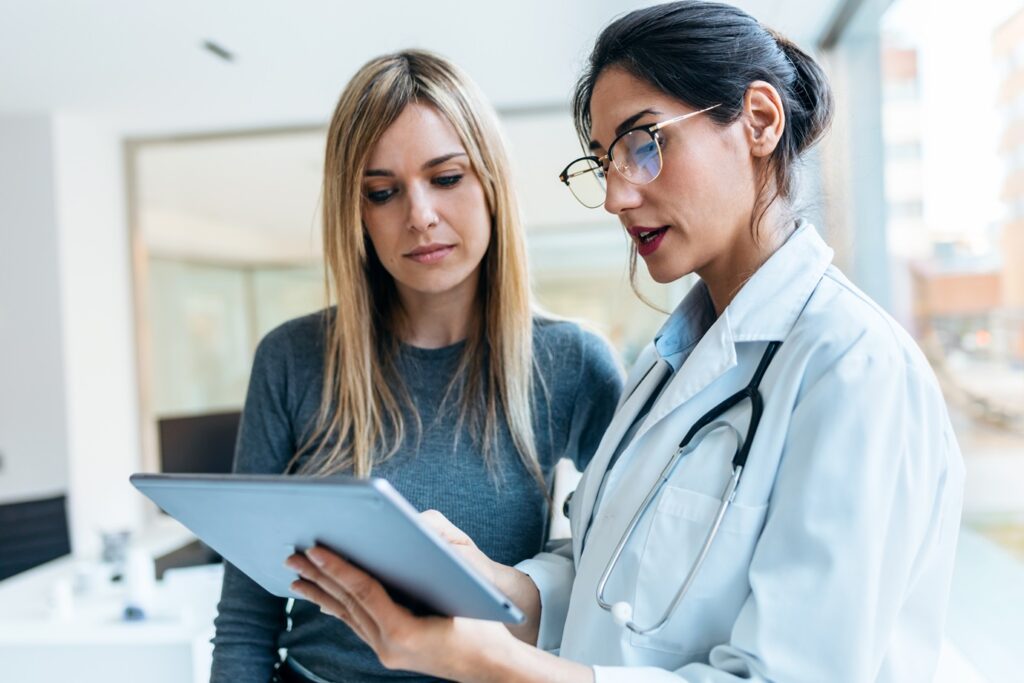It’s no secret that women’s health has fallen under the radar for far too long, and historically, hasn’t been given the attention it deserves.
Stigmatisation, dismissal of pain and a lack of access to critical care are all too often associated with women’s health outcomes.
Here in Australia, the #EndGenderBias survey, undertaken by the National Women’s Health Advisory Council, found that in 2023, two-thirds of women experienced gender bias or discrimination while accessing healthcare.
Moving into 2024, the federal government made women’s health one of the five priorities nominated under its gender equality strategy.
So what improvements have been made? Here’s a look at some of the wins for women’s health over the past year.
Abortion decriminalised in every state/territory
Australia reached a national milestone this year, after offenses related to abortion access were officially removed from Western Australia’s criminal code.
This marked the moment every state and territory in Australia had officially decriminalised abortion care access. While this is an incredible milestone, there is still a long way to go in ensuring women across all parts of Australia can access affordable reproductive care.
Access to new medicine for early breast cancer
For the first time in more than 15 years, a new government medicine subsidy was made available to allow around 2,000 Australians with an invasive and high-risk form of early breast cancer access to a new medicine for their condition.
VERZENIO (abemaciclib) is now available through the Pharmaceutical Benefits Scheme (PBS) for approximately 1,800 Australians with hormone receptor positive (HR+), human epidermal growth factor receptor 2 negative (HER2-). The new subsidy allows eligible patients to pay just $7.70 (concession) or $31.60 (general patients) each month. Without the subsidy, the medicine would cost more than $100,000 for the two-year course of treatment.
Access to new medicine for endometriosis
For the first time in three decades, women living with endometriosis will now have access to a new treatment on the Pharmaceutical Benefits Scheme (PBS). The treatment– Dienogest (Visanne)– is a daily tablet that works to shrink and suppress the growth of abnormal tissue.
The announcement of Visanne being placed on the PBS is part of a more than $107 million investment from the federal government to support Australians with endometriosis. The national suite of initiatives includes integrated endometriosis care, intervention and treatment.
Twenty-two specialised Endometriosis and Pelvic Pain Clinics were opened around Australia, where access to early intervention and a range of treatment options are available. The government also introduced a new extended 60 minute MBS item for GPs, with the longer consult giving a better opportunity for GPs to treat endometriosis.
Testing for chlamydia and gonorrhoea at home
In an Australian-first, women are able to test themselves for chlamydia and gonorrhoea at home, with a rapid home test, approved by the Therapeutic Goods Administration (TGA).
The test involves using a swab sample, which produces a positive or negative result for both infections in 15 minutes.
Sexual health experts have welcomed the improved access but also urged caution, noting that it’s important for women to continue consulting with medical professionals about STI prevention and treatment.
Free pads and tampons in Victoria’s public places
The Victorian government is installing vending machines with free pads and tampons in up to 700 public places across Victoria. Premier Jacinta Allan and Minister for Women Natalie Hutchins announced the launch of the first 50 locations offering these free products in public spaces.
This initiative is globally pioneering, with only Scotland also providing free pads and tampons in public spaces and more recently the ACT.
Easier access to the contraceptive pill in NSW
Women in New South Wales are able to access a resupply of the oral contraceptive pill from a certified pharmacist without a new prescription, following a successful trial.
Women who have been taking the pill for two years can obtain a resupply without needing to return to their doctor for a new prescription. Specially trained pharmacists offer women 12 months’ supply of selected ‘low-risk’ contraceptive pills, which contain only small amounts of estrogen or only contain progestogen.
When the scheme commenced last September, only women aged 18 – 35 could access the provision. From September of this year, women aged up to 49 are also able to access the scheme.
Greens pledge $100 million a year to abortion access
The Greens have announced a plan to provide $100 million a year to make abortions affordable and accessible in public hospitals across Australia.
Under the policy, announced by Senator Larissa Waters, the funding will equip public hospitals to provide termination services.
Currently in Australia, many public hospitals do not provide termination services, forcing pregnant people who are seeking abortions to travel or pay for expensive private services. The cost of surgical abortions can range from $500 to as high as $8,500.
Pregnant women to be offered free RSV vaccine
In 2025, eligible pregnant women in Australia will be able to receive the respiratory syncytial virus (RSV) vaccine for free under the National Immunisation Program (NIP), the government announced in November.
A highly infectious virus that spreads via droplets, RSV can be particularly serious for babies. The vaccine is given to women during pregnancy to protect newborns in the early months after birth.
Previously, the RSV vaccine was not currently funded under the National Immunisation Program (which includes all the vaccines you can get for free throughout your life). It could only be purchased privately for up to $350.


